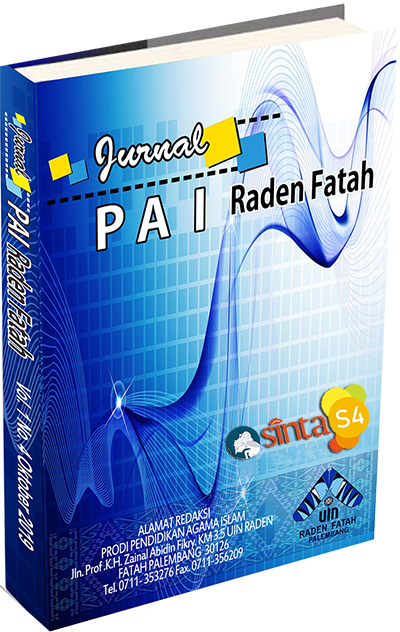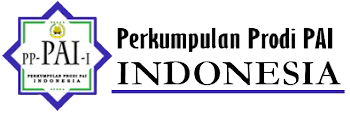Efektivitas Model Pembelajaran Station Rotation Dalam Meningkatkan Hasil Belajar Siswa
DOI:
https://doi.org/10.19109/pairf.v7i1.27244Keywords:
Station Rotation, Student Learning Outcomes, Innovative Teaching ModelAbstract
At SMP Negeri 2 Palembang, the persistent underachievement of students, as indicated by their summative assessments, remains a critical challenge. This issue is not solely attributed to pedagogical strategies but is compounded by classroom dynamics, material misalignment, and ineffective teaching methodologies. In response, the Station Rotation model was introduced to enhance student engagement by rotating them through diverse learning stations, including independent, collaborative, and technology-driven activities. This study aimed to evaluate the effectiveness of the Station Rotation model in improving academic performance. Utilizing a quantitative approach with a True Experimental Design (Posttest-Only Control Design), the research involved 30 students in both the experimental and control groups. Data were collected through tests, observations, and documentation. Results demonstrated a significant improvement in student learning outcomes following the intervention. Prior to the intervention, 63.33% of students were in the medium-performance category, with 20% in the high-performance category. Post-intervention, the medium-performance group increased to 73.33%, while the high-performance group grew to 3.33%. A Paired Samples T-Test yielded a statistically significant result (Sig. (2-tailed) = 0.000), validating the model’s impact. The experimental group’s average test score improved to 83.50, compared to 64.17 in the control group. Additionally, N-Gain analysis supported these findings, revealing a 63.97% improvement in the experimental group (moderate category), compared to a 21.14% increase in the control group (low category). These results underscore the efficacy of the Station Rotation model in enhancing student learning outcomes.
References
Alviansyah, Syahid, Muhammad Fauzi, and Baldi Anggara. “Pengaruh Kesadaran Diri Terhadap Hasil Belajar Siswa.” Jurnal PAI Raden Fatah 4, no. 3 (2022): 227–38. https://doi.org/10.19109/pairf.v4i3.7789.
Horn, Michael B., and Heather Staker. Blanded: Using Disruptive Innovation to Improve Schools. San Francisco: Jossey-Bass, 2015.
Ikrimah, Ade. “Efektivitas Metode Pembelajaran Bamboo Dancing Terhadap Hasil Belajar Siswa Materi Beriman Kepada Rasullullah Kelas XI SMK As Syamsuriyyah Wanasari Brebes.” Universitas Islam Negeri Walisongo, 2022.
Ismail, Fajri. Statistika: Penelitian Pendidikan Dan Ilmu-Ilmu Sosial. Cetakan II. Jakarta: Premedia Group, 2020.
Julannari, Hamra, Indah Suryawati, and Saudah. “Pengaruh Model Pembelajaran Blended Learning Tipe Station Rotation Terhadap Hasil Belajar Siswa Pada Mata Pelajaran IPA di SD Negeri 53 Banda Aceh.” Jounal Of Education Science 10, no. 1 (2024).
Karnila, Sofika Dwi. “Pengaruh Pembelajaran Diferensiasi Melalui Model Station Rotation Terhadap Kemandirian Belajar Siswa Skripsi.” Universitas Pendidikan Indoensia, 2023. https://www.ncbi.nlm.nih.gov/books/NBK558907/.
Marlina, Leny, and Mursyidah Mursyidah. “Konsep Pengorganisasian (Organizing) Pendidikan Agama Islam Pada SMA Negeri 6 Palembang.” El-Idare: Jurnal Manajemen Pendidikan Islam 6, no. 1 (2020): 1–12. https://doi.org/10.19109/elidare.v6i1.4345.
Monicha, Ririn Eka, Lukman Asha, Asri Karolina, Eka Yanuarti, Maryamah Maryamah, Mardeli Mardeli, and Nyayu Soraya. “Penanaman Nilai-Nilai Akhlak Dalam Pembelajaran Pendidikan Agama Islam Menghadapi Era Milenialdi Sma Negeri 2 Rejang Lebong.” Tadrib: Jurnal Pendidikan Agama Islam 6, no. 2 (2021): 199–214. https://doi.org/10.19109/tadrib.v6i2.5925.
Putri, Cindy Sherlina. “Pengaruh Model Pembelajaran Station Rotation Terhadap Pemahaman Konsep Materi Gerak Lurus.” Universitas Islam Negeri Raden Intan Lampung, 2024. http://repository.radenintan.ac.id/31849/.
Saputra, Ade Akhmad, Lia Efriliyanti, Alihan Satera, and Aulia Hakim. “Peran Manajemen Pendidikan Dalam Peningkatan Kualitas Pembelajaran Pada Madrasah Tsanawiyah Negeri 1 Palembang.” Edugama: Jurnal Kependidikan Dan Sosial Keagamaan 08, no. 02 (2022): 371–85. https://doi.org/10.32923/edugama.v8i2.2967.
Setyawan, Dodiet Aditya. Hipotesis Dan Variabel Penelitian. Jakarta: CV Tahta Media Group, 2021.
Siti Ambarli, Zulfiati Syahrial, and Mochammad Sukardjo. “Pengaruh Model Blended Learning Rotasi Dan Kecerdasan Intrapersonal Terhadap Hasil Belajar IPA Di SMP.” Visipena Journal 11, no. 1 (2020): 16–32. https://doi.org/10.46244/visipena.v11i1.1089.
Sugiyono. Metode Penelitian Kuantitatif. Cetakan II. Bandung: Alfabeta, 2022.
———. Metode Penelitian Pendidikan: Pendekatan Kuantitatif, Kualitatif, Dan R&D. Bandung: Alfabeta, 2015.
Sukirman, Ega Ris, Leny Marlina, and Asri Karolina. “Implementasi Manajemen Pendidikan Berbasis Sekolah Dalam Meningkatkan Mutu Pendidikan Agama Islam.” Jurnal Administrasi Pendidikan 4, no. 2 (2024).
Syarnubi, Syarnubi. “Profesionalisme Guru Pendidikan Agama Islam Dalam Membentuk Religiusitas Siswa Kelas IV Di SDN 2 Pengarayan.” Tadrib: Jurnal Pendidikan Agama Islam 5, no. 1 (2019).












.png)


1.png)



